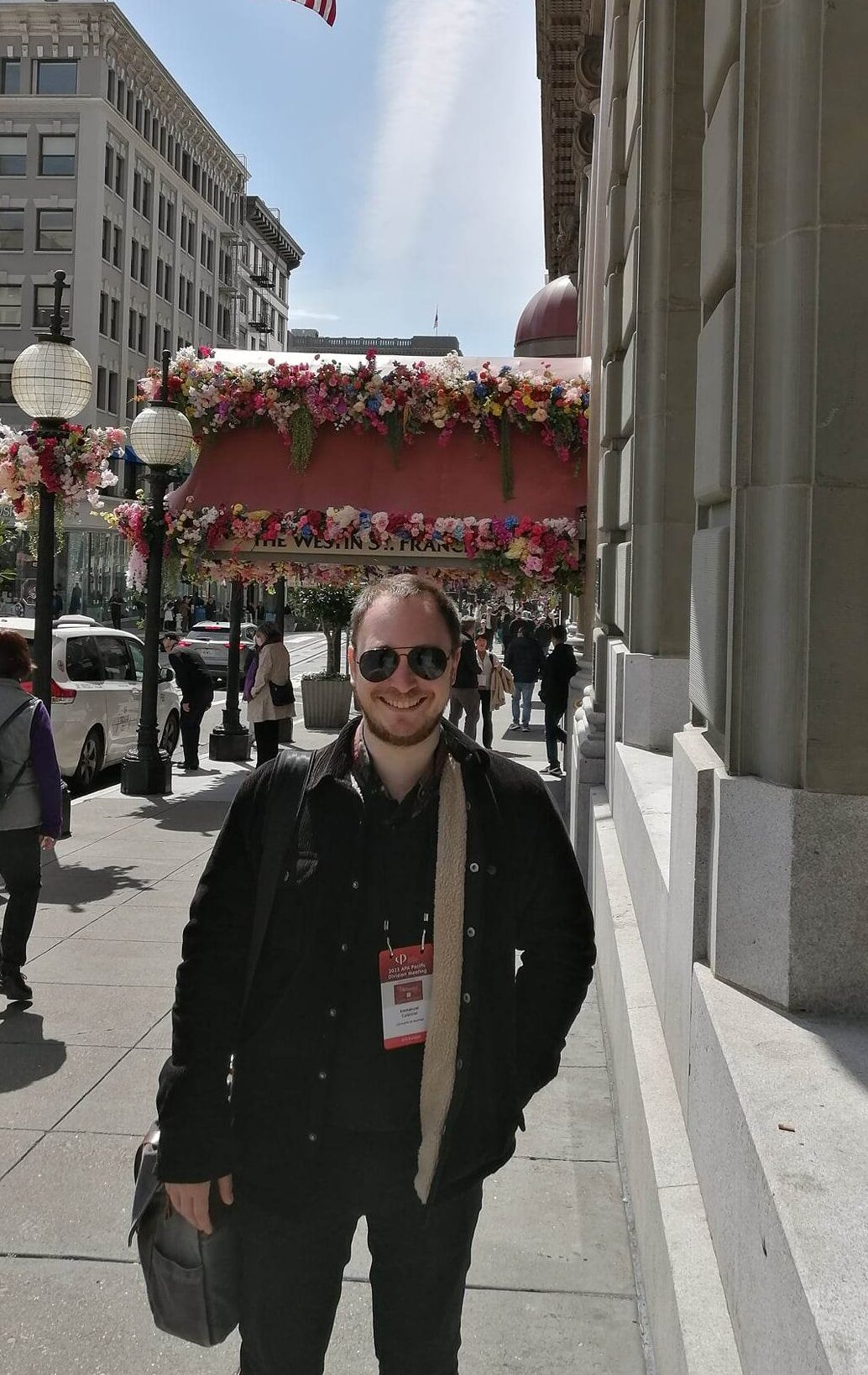 I had the incredible opportunity to present a paper I’m currently working on at the APA Pacific 2023 which took place April 4-8 in San Francisco, California.
I had the incredible opportunity to present a paper I’m currently working on at the APA Pacific 2023 which took place April 4-8 in San Francisco, California.
In this paper, I argue that most theories within philosophy of love fail to account for experiences of love by people who live with psychological and/or neurological disorders. As a result of this, I argue that romantic love needs to be addressed on the level of perception because it is through perception that we can understand how meaning, signification, and affect take place within interpersonal relationships. I base my argument on Merleau-Ponty’s work on perception and at the same time I present phenomenology as a better suited approach to understanding romantic love in a more inclusive way.
Here is the abstract to my paper:
“Using French phenomenologist Maurice Merleau-Ponty’s work, I argue in this paper that romantic love must be addressed on the level of affective perception when it is experienced within a context of mental health. An extremely large portion of the literature on philosophy of romantic love focuses on its epistemological and metaphysical standing in such a way that is non-inclusive for people diagnosed with certain (neuro)psychopathologies (e.g.: Gabriele Taylor’s definition of romantic love (1975), which uses beneficence as a major condition, hardly applies to somebody diagnosed with Asperger’s who does not experience social concepts like beneficence on the same level as a neurotypical person but nevertheless still loves someone for different reasons). I suggest that this rupture created by the wrongful expectations of these theories for people to fit certain normative standards of epistemological and/or cognitive constitutions can be resolved by returning to a more perceptual understanding of this experience, which is especially mindful of experiences of romantic love within a context of mental health. I begin my argument by presenting how some of the major (materialist and non-materialist) definitions and theories of romantic love have grievously ignored neurodivergent people and their ability to experience romantic love in ways that do not fit these theories. The second part of my paper examines how a phenomenology of perception can solve this issue by highlighting the affective dimension of perception. To do so, I revisit Merleau-Ponty’s exposition of a woman’s experience with aphasia that was caused by her socially imposed inability to maintain a romantic relationship with her partner (Phenomenology of Perception p.193). By explaining how Merleau-Ponty’s understanding of the body as an ensemble of habitual and open-ended meanings, and as especially affectively dependent on perception to make sense of its experiences, I demonstrate that his phenomenological framework provides a better terrain for understanding romantic experiences lived by people with psychopathologies and neurological disorders. Overall, my paper attempts to support the works of critical phenomenologists such as Sara Heinamaä and Lisa Guenther on the inclusivity and diversity of modern understandings of love and sexuality.”
It was my first time attending the APA meeting and it was wonderful. I’m very thankful to my peers from the Society For Philosophy of Sex and Love for the feedback they provided me.
But it wasn’t just the conference that was wonderful. My experience of San Francisco was unbelievable and I’m planning on writing a few more blog posts about how my visit to the Golden Gate city has been philosophically fruitful in itself…
